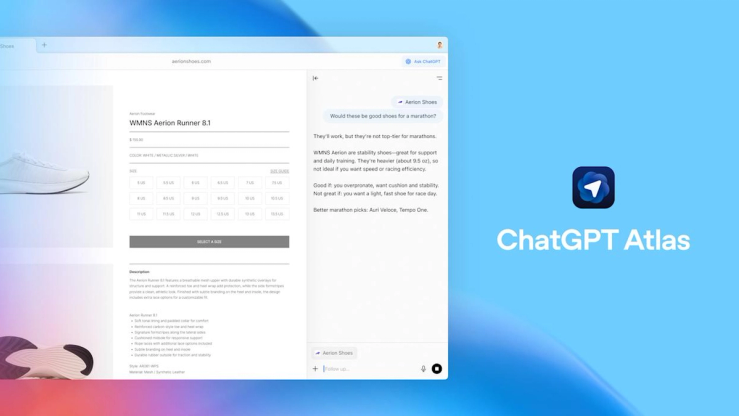Reed’s view
OpenAI launched a web browser yesterday and my biggest takeaway was how rapidly powerful the OpenAI brand has become. While we’ve known for some time that OpenAI was working on the product, it’s very late to the game. Still, because of the company’s massive consumer following, it has as good of a chance as any company (maybe even Google!) to win the AI browser battle.
AI-enabled browsers are in their infancy, and have a long way to go to become ubiquitous for internet users. They also suffer from some pretty significant security issues that need to be ironed out.
One phenomenon I noticed while using Perplexity’s Comet browser over the summer is what I call the “bad website paradox.” AI browsers work best on well-designed websites. But they’re more so put to the test on the very long tail of horrible websites. For instance, the Comet browser still gets completely stumped on the website Semafor uses for expenses and travel.
The promise of the AI-powered web browser is a tantalizing one: Imagine every annoying thing you do on the web is done for you. And it kind of works! I’ve seen the Comet browser do some incredible stuff. But on the most complex tasks, some little thing always goes wrong. In the end, it hasn’t really replaced any of the annoying time sucking daily tasks.
OpenAI’s latest announcement might be one workaround. Creators of websites can implement accessibility features that could help aid the AI models powering the browser. But then, it’s probably still the best websites that will take OpenAI’s advice.
In this article:
Room for Disagreement
Bloomberg opinion columnist Dave Lee wrote that ChatGPT Atlas has “little chance of persuading a meaningful number of Chrome users to switch” because the solutions offered by the browser are only temporary. Having AI click through websites for users can be glitchy and unreliable, compared to the more seamless experience of shopping directly through a chatbot, which OpenAI is also investing in. That mouse control feature also requires the company’s $20-per-month “Plus” subscription, a cost that could turn users away, he added.
Notable
- Atlas and other agentic browsers should be approached with caution, Washington Post columnist Geoffrey A. Fowler warns. Using it means giving it permission to access essentially all of our online data and activity, posing “vast” privacy risks, and current controls for managing it are “confusing at best.”
- When Perplexity launched Comet in July, the company’s CEO knew it wouldn’t be perfect, but what mattered more was being early in the game: “You’ve got to position your product and your technology with the assumption that the models are eventually going to be great and also going to be affordable,” he told Semafor in an interview.


